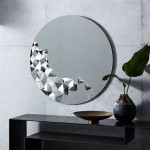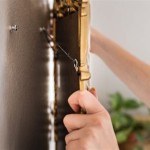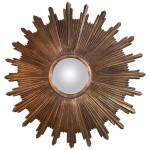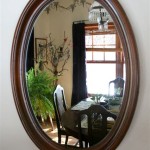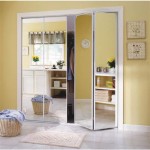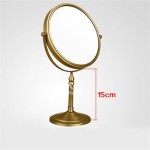Mirror Beside Bed Feng Shui: Reflections on Rest and Energy
The placement of mirrors in a bedroom, particularly beside the bed, is a frequently debated topic in feng shui. This ancient Chinese practice emphasizes the harmonious flow of energy, or "qi," within a space to promote well-being and prosperity. While mirrors can enhance the aesthetic appeal of a room and create an illusion of spaciousness, their reflective properties can also disrupt the delicate energy balance within a bedroom, particularly when placed incorrectly. Therefore, understanding the principles of feng shui related to mirror placement can contribute to a more restful and harmonious sleep environment.
Key Points Regarding Mirrors and Feng Shui
- Mirrors reflect energy, potentially disrupting the calm required for sleep.
- Positioning a mirror to reflect the bed is generally considered unfavorable in feng shui.
- Careful placement can mitigate potential negative effects and even enhance positive qi.
One of the fundamental principles of feng shui is the concept of qi. This vital energy is constantly flowing and interacting with the environment. Mirrors, due to their reflective nature, can amplify, redirect, and even scatter this energy. In a bedroom, the goal is to cultivate a calm and restorative qi that promotes restful sleep. A mirror placed beside the bed can potentially disrupt this tranquility by reflecting energy back into the room, creating a sense of restlessness or unease.
Potential Negative Effects of Mirrors Beside the Bed
- Amplified energy can lead to insomnia and restless sleep.
- Reflection of the bed can invite third-party energy into the relationship.
- The sudden sight of one's reflection upon waking can be startling and disruptive.
A common concern regarding mirrors beside the bed is the reflection of the sleeper. In feng shui, this is often seen as symbolically doubling one's troubles and worries. The mirror reflects the image of the sleeping individual back into the room, potentially amplifying anxieties and disrupting the peaceful energy necessary for restorative sleep. This reflection can also be perceived as inviting a "third party" energy into the relationship, especially in a double bed scenario, which can lead to disharmony and conflict.
Alternative Placement Strategies for Mirrors
- Inside a closet door: Keeps the mirror hidden when not in use.
- On a side wall: Avoids direct reflection of the bed.
- High on the wall: Minimizes the reflection of the sleeping individual.
The sudden sight of one's reflection upon waking can also be jarring and disruptive to the peaceful transition from sleep to wakefulness. This sudden visual stimulation can activate the nervous system, potentially leading to feelings of anxiety or disorientation. While some individuals might not be consciously aware of these subtle energetic shifts, they can nonetheless contribute to a less restful and restorative sleep experience.
Considerations for Mirror Shapes and Sizes
- Small mirrors are less disruptive than large ones.
- Round or oval mirrors are generally preferred over sharp-angled ones.
- The size of the mirror should be proportionate to the size of the room.
While the placement of mirrors beside the bed is generally discouraged in feng shui, there are situations where the negative effects can be mitigated. For example, if a mirror is essential in a small bedroom to create a sense of spaciousness, it can be strategically positioned to minimize its impact on sleep. Placing the mirror inside a closet door allows it to be used when needed but concealed while sleeping. Alternatively, positioning the mirror on a side wall, where it does not directly reflect the bed, can also reduce its disruptive potential.
Using Mirrors to Enhance Positive Qi
- Reflecting natural light can brighten and energize a room.
- Strategically placed mirrors can create a sense of spaciousness and flow.
- Reflecting artwork or beautiful objects can enhance positive energy.
The shape and size of the mirror also play a role in its energetic impact. Smaller mirrors are generally less disruptive than large ones. Round or oval mirrors are often preferred in feng shui as they are associated with softness and flow, while sharp-angled mirrors can create a more active and potentially disruptive energy. Furthermore, the size of the mirror should be proportionate to the size of the room. An oversized mirror in a small bedroom can overwhelm the space and create an imbalance in the energy flow.
Ultimately, the placement of mirrors in a bedroom requires careful consideration within the context of feng shui principles. While the practice generally advises against placing mirrors beside the bed due to their potential to disrupt sleep and create energetic imbalances, thoughtful placement and consideration of size and shape can mitigate these negative effects. The goal is to create a harmonious and restorative environment that supports restful sleep and promotes overall well-being.

The Feng Shui Of Mirror Placement In Your Bedroom City Mattress
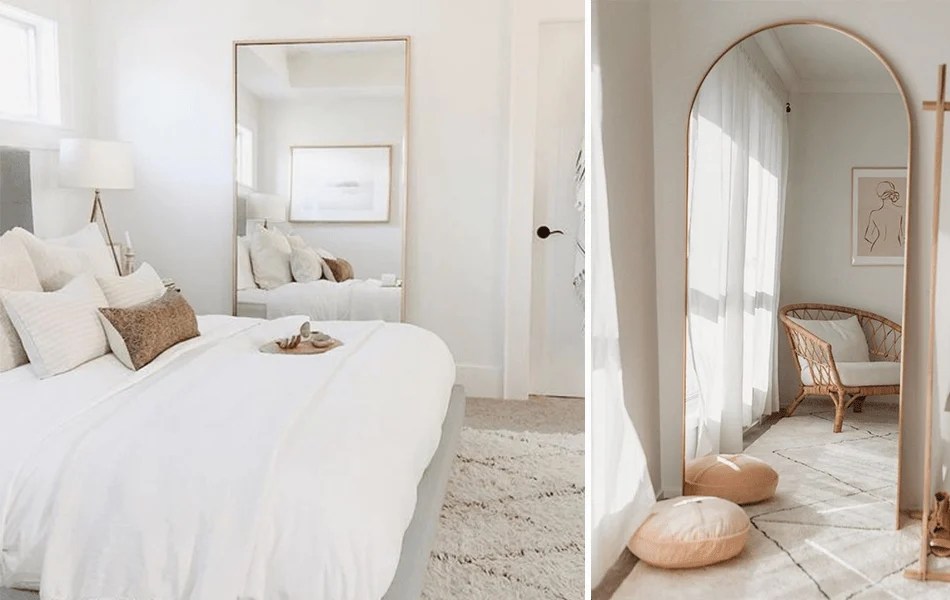
Here S Why Your Mirror Shouldn T Reflect The Bed According To Feng Shui Bria Homes

Where To Put A Mirror In Your Bedroom Feng Shui Tips Worst Room

Why Having Your Mirror Facing Bed Is Bad Feng Shui

8 Tips To Feng Shui Your Bedroom So You Can Get Better Sleep And Luck

Why Mirror Facing The Bed Is Bad Feng Shui

How To Use Mirrors For Good Feng Shui 14 Steps With Pictures

Feng Shui For Your Bedroom What To Bring In Keep Out Mindgreen
:strip_icc()/cdn.cliqueinc.com__cache__posts__222765__-222765-1493392610633-image.700x0c-694f324bb0a54421b8d9586aa061c892.jpg?strip=all)
The Best Feng Shui Bedroom Decorating Ideas From An Expert
_0_1200.jpg?strip=all)
How Feng Shui Mirrors Can Change The Face Of Your Bedroom

